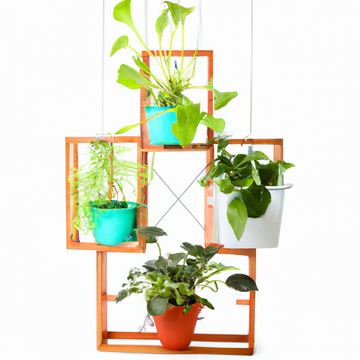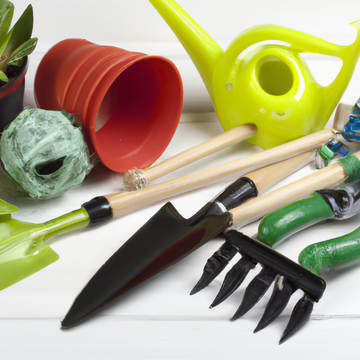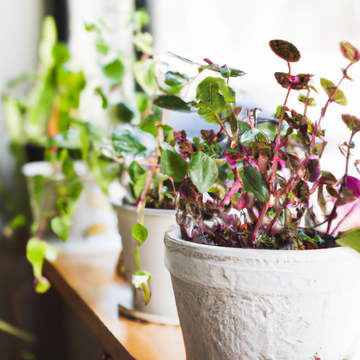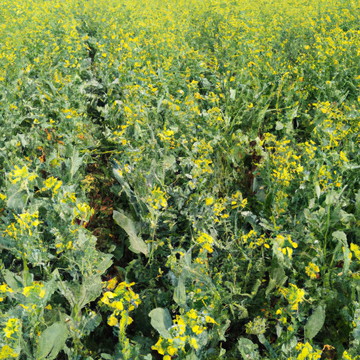Reasons Why Your Seeds Don’t Germinate And What You Can Do About It
by Saru Kaushish on Feb 01, 2023
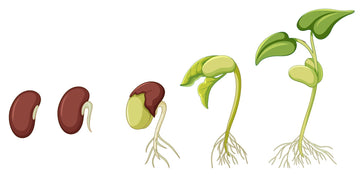
If you've chosen to establish a garden, you might have done your homework and ordered the best soil and seeds. Once you receive your order, you either plant seeds immediately or keep them near a north window.
However, sometimes they don’t germinate, and that’s very disappointing. You don't know why your seedlings didn't germinate. Fortunately, some useful ways exist to determine or pinpoint the cause and take necessary measures to resolve the issue as soon as possible.
Let’s take a closer look at them!
Tips and Suggestions That May Help
1. Incorrect Seed Storage
Seeds are very much living, despite how they may appear to be dead! The plant zygote that is inside a seed germinates when the right circumstances are met. Even though every tiny packet of seeds is hermetically sealed (airtight), storage is still crucial because extreme heat and humidity can negatively impact a seed's life.
Always verify the ‘Best-Before’ date when purchasing seed from your neighborhood store. A store's fluctuating climate may cause seeds to pre-germinate or cause their coat to crack. Moreover, as seeds get older, their possibility of germination and the number of germinations decline.
Suggestion: Don't leave the seed packet in direct sunlight when you are done with your sowing part. If you can't sow your seed immediately, store it in a cool, dry location.
2. Planting in the Wrong Season
Seasonal differences are very apparent in both vegetable and flowering vegetation. Not all vegetables can be produced year-round. Beans, bell peppers/capsicums, cucumbers, eggplant, pumpkins, sweet corn, and tomatoes will not yield even if seeds germinate in the winter. However, cabbage, onion, garlic, swiss chard, beetroot, peas, radish, and carrots can be sown in the fall and may still grow. There is a range of ideal temperatures where the seeds of various vegetable crops will successfully germinate.

Suggestion: Always start by reading the information provided on the rear side of the seed packet before sowing. A seed recommended for spring or summer sowing will struggle to germinate in fall or winter.
3. Soil Is Too Wet Or Dry
When germination occurs, most legumes favor a moist, aerated soil bed. The germination procedure must first be started with water. If you place the seed in dry soil, it may need more water to germinate. This is because moisture will be drawn from the seed and shoot before it has a chance to become established.
However, excessive watering not only causes waterlogging, which reduces the availability of oxygen in the soil but also compacts the soil, which prevents emerging shoots from penetrating it. When a plant is most vulnerable in its lifecycle, the seed is also exposed to microorganism attacks. Bacterial development is best in moist soil. So you need to maintain the optimum wetness in the soil.
Suggestion: Remove the topsoil from a small patch of the bed's interior if you're unsure if the soil is suitable for planting. Squeeze your palm tightly around a chunk of soil you took from there. If the soil crumbles, it is too dry; if it makes a ball that holds together, press your finger against it; if it still holds together and conforms to your finger, the soil is too wet. You can go for organic fertilizer for flowering plants.
4. Planting Seeds Too Deep or Too Shallow
Usually, the seed package specifies the depth of planting. In general, planting small seeds too deeply results in poor germination and flimsy seedlings, while planting them too shallowly in the yard increases the risk of the seeds drying out.
Generally speaking, a seed shouldn't be planted more than three times deeper than its breadth. However, there are some exceptions; most flower seeds are content to be raked over and should not be sown deeply at all. While most other vegetables should be covered, lettuce seed, for example, can be sown directly on top of the soil.
Suggestion: If feasible, plant your smaller seeds in a tray and store them for at least four weeks after germination. Use a fine seedling mix with palm peat in your containers to keep the seeds moist during germination. Additionally, taking care of your plants in a tray is simpler because there is no weed rivalry for water, and the tray can be easily moved around to ensure the seed is content.
5. Not Nurturing Seed During Germination
The most crucial thing to remember is that a seed is a living entity that requires nurturing and care to grow. The effects of drought and competition for nutrients will be exacerbated by seeding in a yard that is already overcrowded. When planting your plants in your yard, remember whether they prefer full, partial, or shade exposure.
In addition to being trampled by dogs and cats playing in the garden, the first shoots from a seedling are vulnerable to attack by insects, birds, and other pests. A vegetable plot can suffer damage from rabbits, mice, and even monkeys. Additionally, moving through flower beds compacts the earth, which makes it more difficult for seeds to sprout and form roots.
Suggestion: To keep all animals out of your vegetable garden, a barrier is ideal. A barrier planting of marigolds around your vegetables could be a deterrent if you want to keep your dog away. In addition, marigolds repel a range of insect pests, draw pollinators, and bring color to your garden. There is also evidence that they can manage soil nematodes.
Wrapping Up
Your seeds might not be germinating for a variety of reasons mentioned above. But with a little research and tweaking, you may have a thriving garden and never again wonder why your seeds didn't germinate. In addition to this, you can also use organic fertilizer for plants to make your gardening endeavors succeed.

